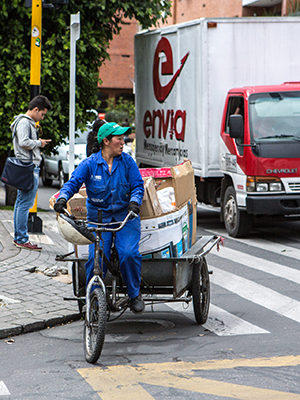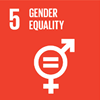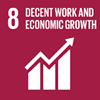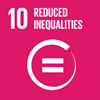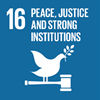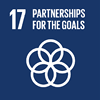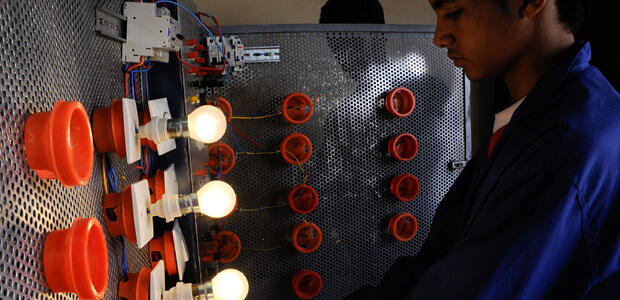Transforming economies, states, and societies
At its core, development is about the well-being of people. But it is also about creating societies which provide fundamental rights and just social political outcomes. Sustainable and inclusive development requires transformative changes across three fundamental areas: in the structures of economies, in the state, and institutions that govern social and market interactions and broader developmental processes, and in society itself. These transformations are central to the achievement of the United Nations’ 2030 Agenda for Sustainable Development and the Sustainable Development Goals (SDGs).
The 2019–23 UNU-WIDER work programme focuses on the interlinked development challenges of transforming economies, states, and societies and maps them against SDGs 5, 8, 10, 16, 17. By mobilizing research evidence for action through the ongoing processes in the UN and its member states, the institute continues to work with stakeholders to strengthen capacities for research, technical, and policy analysis, and facilitate exchange of experiences and knowledge towards bold and collaborative development solutions for countries and regions around the world.
Click on the table below to explore our current work or scroll down to search past projects.
16 active and previous projects
Filter by...
2012-13
Conference on inclusive growth in Africa - measurement, causes, and consequencesapid and sustained poverty reduction requires ‘inclusive growth’ that allows people to contribute to and benefit from the development process. Africa’s economic performance has improved considerably since the 1980s and early 1990s. Nevertheless, many...
2012-13
Experimental and non-experimental methods to study government performance: contributions and limitsIn recent years, field experiments using randomized trials have gained increasing popularity in the field of development economics. In particular, scholars have argued strongly for their use as the best means of identifying ‘what works’ in foreign...
2012-13
Africa's emerging middle-classSub-Saharan Africa currently is facing a range of demographic and socioeconomic shifts that hold important implications for both the region’s economic and political development. One of these shifts has been the emergence of a sizeable and dynamic...
2012-13
Reconciling Africa’s growth, poverty and inequality trends: growth and poverty project (GAPP)Despite decades of research and advances in data and methods, measuring poverty and reconciling this with patterns of economic growth remains a complex and contentious issue. UNU-WIDER’s Growth and Poverty Project (GAPP) re-examines Africa’s growth...
2012-13
Building state capability through Problem-Driven Iterative Adaptation (PDIA)As a sub-component of the Research and Communication on Foreign Aid (ReCom) programme, the PDIA project feeds into the themes: governance and fragility & social sectors. An integral part of development is the expansion of capability of the state to...
2002-03
Conference on sharing global prosperityConferences: 6 September 2003 WIDER Conference on Sharing Global Prosperity
2002-03
Reconstruction in conflict and post-conflict societiesReconstruction from conflict is a complex and demanding task, and a major challenge for the UN system as well as the wider donor community. National authorities and their donor partners are faced with multiple priorities - rebuilding infrastructure...
2002-03
Global trends in inequality and povertyThe scale and causes of international income inequality and poverty continue to be much debated. Yet, the quality of the analysis and data underlying this debate still leaves much to be desired. Accordingly, this project will collate poverty data to...
2002-03
Spatial disparities in human developmentMany developing and transition countries have considerable regional variation in average household income, poverty, and health and educational status. National human development indicators can therefore mislead policy-makers when large regional...
2002-03
The sustainability of development financingThe real value of official aid flows fell for much of the 1990s, and private capital flows to low-income countries remain mostly limited. The decline in aid flows may endanger the development process, since they finance much of the development budget...
2002-03
The impact of the WTO agreement on low income countriesWhen the Uruguay Round was being negotiated and it was coming to a close, a number of estimates were made about the impact of the agreement on poor countries. Many assessments indicated that there would be a net loss for them while others came up...
2002-03
Social development indicators - measuring human well-beingSummary measures of human well-being are increasingly used to compare and monitor performance within and across countries. The UNDP's Human Development Index (HDI) is one of a number of measures which have done much to refocus attention on the...
2002-03
Long-term development in the CFA-zone countries of Sub-Saharan AfricaMembers of the CFA-zone enjoy currency convertibility, fiscal and monetary policies which are more prudent than SSA as a whole, and a large amount of financial and technical assistance. These advantages do not appear, however, to have resulted in...
2002-03
Innovative sources for development financeA joint project with the United Nations Department of Economic and Social Affairs (UN-DESA) in response to the UN General Assembly call for a rigorous study on ways to increase external finance for developing countries, particularly to meet the MDGs...
 Join the network
Join the network